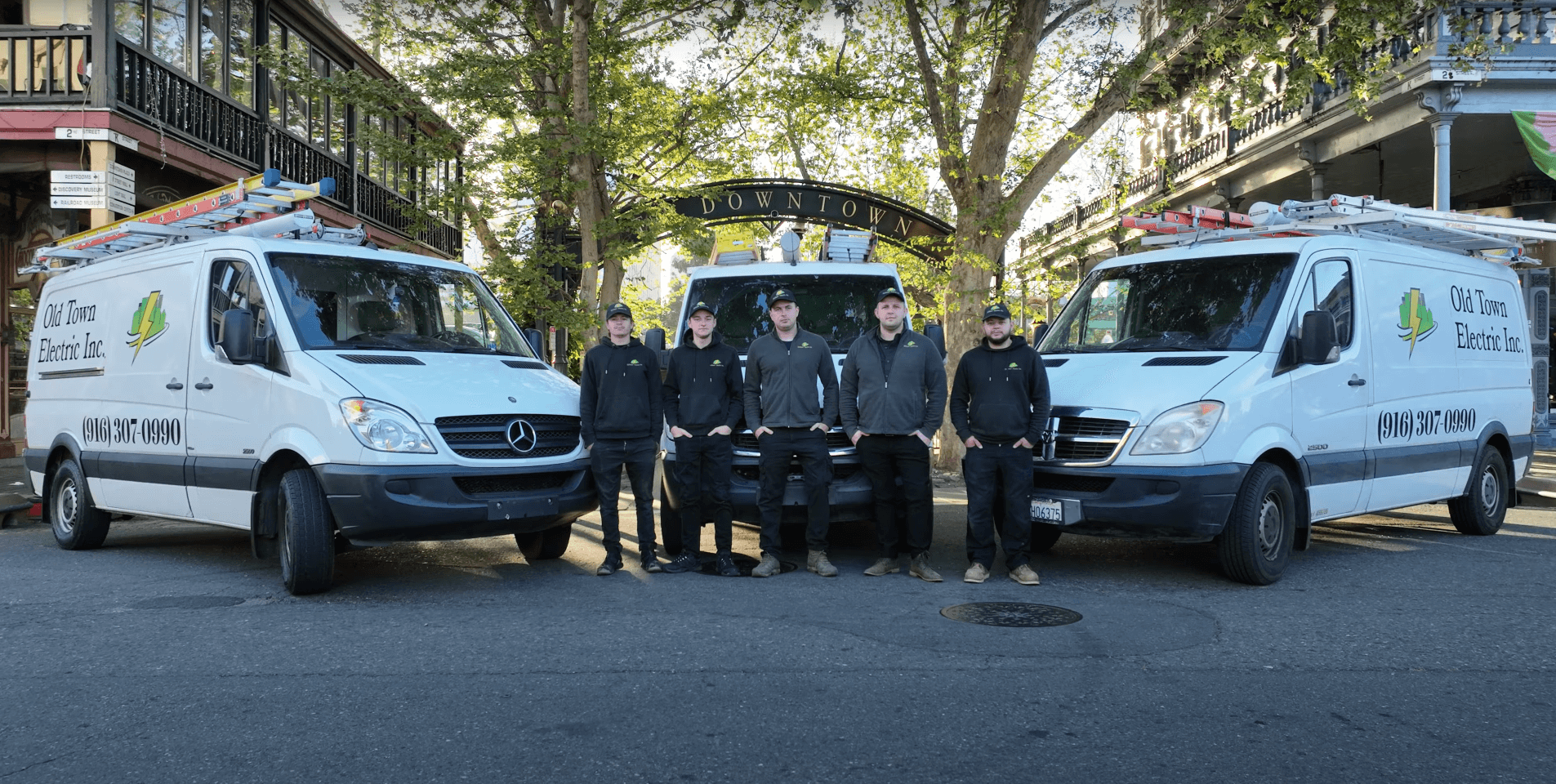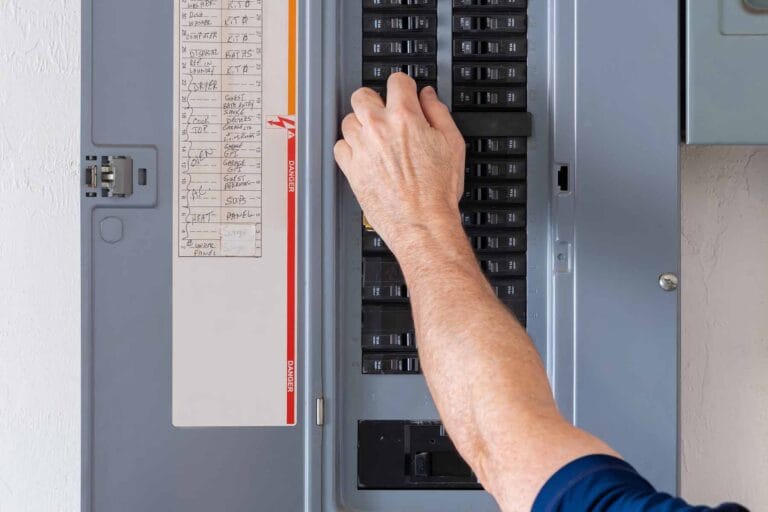When something electrical stops working in your home, who do you call, a licensed electrician or a handyman?
It’s a more important decision than many homeowners realize. While both professionals offer repair services, there’s a big difference in training, legal scope of work, liability, and, most importantly, safety.
Let’s break it down in a way that’s clear, practical, and helps you make the right call.
What Is a Licensed Electrician?
A licensed electrician is a professional who has completed hundreds of hours of classroom instruction and on-the-job training, passed state exams, and holds a valid license issued by the state or local government.
They’re qualified to:
- Install new electrical systems
- Repair and troubleshoot wiring
- Handle circuit breakers and panel upgrades
- Work on high-voltage systems
- Pull permits and ensure code compliance
In short: If electricity flows through it, a licensed electrician is trained, and legally allowed, to touch it.
Here’s the thing:
Electricity is dangerous. It can cause fires, electrocution, or expensive damage when handled incorrectly. That’s why electricians go through such rigorous licensing requirements.
What Does a Handyman Do?
A handyman is a generalist. They can fix a leaky faucet, patch drywall, replace a light fixture, or install shelving. They’re great for odd jobs around the house that don’t require specialized licenses.
But when it comes to electrical work, a handyman is usually not licensed to handle complex or high-voltage projects.
So what can a handyman legally do?
It varies by state, but in most places:
- They can replace light switches or outlets if no rewiring is needed
- Install ceiling fans or light fixtures if no new wiring is run
- Handle minor repairs like replacing a doorbell or smoke detector
They can’t upgrade your electrical panel, rewire circuits, or run new lines through your walls. That’s licensed electrician territory.
Key Differences at a Glance
| Feature | Licensed Electrician | Handyman |
|---|---|---|
| License Required | Yes, state- or city-issued | No license for electrical work |
| Scope of Work | All electrical systems, new installs | Minor repairs only |
| Permits | Can pull permits for code compliance | Cannot pull electrical permits |
| Training | 4–5 years of apprenticeship or trade school | None required |
| Legal Responsibility | Fully liable and insured | May lack proper insurance |
| Safety | Trained to handle electrical hazards | Riskier for electrical jobs |
Why Licensing Matters (Big Time)
Hiring a licensed electrician isn’t just about ticking a box, it’s about protecting your home and family.
Think about it:
- A loose wire can cause a house fire.
- An overloaded panel can fry your appliances.
- Poor grounding can lead to electrocution.
Licensed electricians are trained to prevent these risks and follow National Electrical Code (NEC) standards. Handymen? Not so much.
Real-world example:
A Sacramento homeowner hired a handyman to install a new oven and run a 240V line. The wiring was done incorrectly. Two weeks later, it sparked a kitchen fire. The homeowner’s insurance denied the claim because the work wasn’t performed by a licensed electrician. Total cost: $28,000.
When to Call a Licensed Electrician
If you’re dealing with any of the following, don’t risk it, call a licensed electrician:
- Tripping breakers or flickering lights
- Adding a new appliance that requires a dedicated circuit
- Upgrading your panel to 200 amps
- Installing EV chargers or hot tubs
- Whole-house rewiring
- Anything that requires opening walls or running new wires
Even “small” jobs like adding outlets or running extension wiring should be handled by someone who’s licensed.
When a Handyman Might Be Enough
Handymen are great for simple, non-electrical tasks or very minor electrical ones. You can safely hire a handyman for:
- Replacing a light fixture (if wiring is already in place)
- Installing battery-powered smoke detectors
- Mounting a TV or speaker system
- Repairing drywall around a light switch
- General home repairs
If you’re ever unsure, ask: “Are you licensed to do this electrical work?” If the answer is no, stop right there.
Risks of Hiring an Unlicensed Person for Electrical Work
Let’s be honest, hiring a handyman instead of a licensed electrician often comes down to saving money.
But the savings are short-term. The risks? Long-term.
Here’s what’s at stake:
- Code violations: Work not done to code can lead to failed inspections or require costly rework.
- Safety hazards: Improper work can spark fires or cause injuries.
- Insurance issues: Many home insurers deny claims if damage results from unlicensed electrical work.
- Resale problems: Unpermitted electrical work can delay or tank a home sale.
Saving $200 today could cost you thousands, or worse, down the road.
Licensed Electrician Cost vs. Handyman Rates
Yes, a licensed electrician usually charges more.
- Handyman: $40–$75+/hour
- Licensed Electrician: $90–$150+/hour
But you’re paying for:
- Expertise
- Licensing
- Insurance
- Permitting
- Code-compliant work
It’s like comparing a family doctor to a surgeon. They both work in healthcare, but one has years of specialized training for high-risk procedures.
How to Verify a Licensed Electrician
Before you hire anyone, ask for:
- Their license number
- Proof of liability insurance
- Local references
You can verify their license on your state’s contractor board website. In California, it’s cslb.ca.gov. Most electricians are happy to show credentials—if they hesitate, that’s a red flag.
Final Takeaway: Don’t Cut Corners with Electrical Work
Electrical work isn’t a DIY or “cheap fix” situation. It’s serious business with serious consequences.
If you want peace of mind, choose a licensed electrician, especially for anything beyond a lightbulb swap.
Sure, it might cost a little more upfront. But it could save you from a disaster, a lawsuit, or a failed home inspection.
So the next time you’re deciding between a handyman and a licensed electrician, ask yourself:
Is it worth risking your safety just to save a few bucks?
Contact our team for a quote or inspection, we’re licensed, insured, and ready to help.



